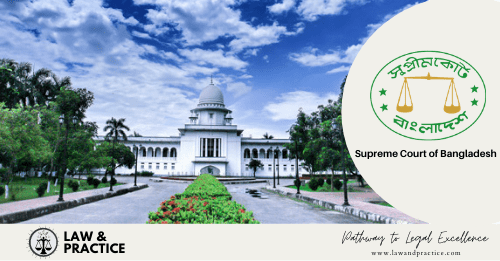 The Appellate Division of Bangladesh’s Supreme Court has reaffirmed a longstanding directive, initially issued by the High Court on May 23, 2005, prohibiting lawyers from holding any form of procession or gathering within the Supreme Court premises. This reinforcement comes amidst escalating tensions and political affiliations within the legal community.
The Appellate Division of Bangladesh’s Supreme Court has reaffirmed a longstanding directive, initially issued by the High Court on May 23, 2005, prohibiting lawyers from holding any form of procession or gathering within the Supreme Court premises. This reinforcement comes amidst escalating tensions and political affiliations within the legal community.
Chief Justice Hasan Foez Siddique, leading a four-member appeal bench, emphasized the necessity of this directive following a recent incident that sparked the contempt of court petition against seven lawyers associated with the Bangladesh Nationalist Party (BNP), including former Attorney General AJ Mohammad Ali. The hearing for this case is scheduled for October 19, intensifying the scrutiny on legal professionals’ conduct within the court’s jurisdiction.
The High Court’s original ban, imposed in 2005, was a response to movements and strikes led by the Supreme Court Bar Association at the time. The directive specifically prohibits lawyers’ movements, congregating, picketing, or carrying out any “gherao” in court premises across the country. The recent directive by the Appellate Division underscores the court’s commitment to upholding this rule in the face of ongoing political tensions.
This directive and the ensuing legal actions highlight a significant moment in Bangladesh’s judiciary, where the lines between legal professionalism and political activism are being distinctly drawn. The Supreme Court’s decision to enforce the ban not only impacts the current political climate but also sets a precedent for the conduct of legal professionals within court premises.
Interested in further readings?
-
The Business Standard: Appellate Division asks lawyers not to hold processions within SC premises
-
The Daily Observer: No assembly, procession in court premises: SC
-
The Daily Star: No assemblies, processions on court premises, SC asks lawyers
-
DAWN: BD lawyers barred from agitation in court area



